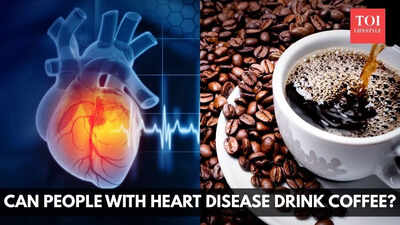ARTICLE AD BOX

Good news for coffee lovers. For decades, caffeine has been painted as a heart troublemaker, but is it really? A new trial suggests your daily cup of coffee might be good for your heart. Researchers found that drinking coffee daily reduced the risk of atrial fibrillation, a common heart rhythm disorder. This finding challenges previous advice to avoid caffeine. The study indicates coffee is not only safe but potentially protective for heart health.
Ever felt a twinge of guilt while reaching for your second cup of coffee? Well then, here’s some good news for you: coffee can be good for you. For decades, caffeine has been painted as a heart troublemaker, but that may soon be a thing of the past.
Scientists are now urging people to go on that caffeine trip, because it could actually be good for the heart.In a first-of-its-kind clinical trial, researchers have found that a daily cup of caffeinated coffee may actually protect the heart. Yes, you read that right. The clinical trial, led by researchers from UC San Francisco and the University of Adelaide, found that drinking coffee every day reduced the risk of atrial fibrillation (A-Fib). The findings were published in the journal JAMA Network.
A coffee a day keeps the risk of A-Fib away
In a surprising turn of events, researchers have found that drinking coffee can protect against atrial fibrillation (A-Fib). This common heart rhythm disorder causes a rapid, irregular heartbeat and can lead to stroke and heart failure.There has been a spike in A-Fib cases in recent years, along with rising obesity rates and an ageing population. More than 10 million US adults have been diagnosed with A-Fib. This heart condition is estimated to affect up to one in three people, making the new findings crucial.
Until now, doctors have advised people with heart issues such as A-Fib to avoid caffeine out of fear that it might trigger symptoms. However, this trial concluded that drinking a cup of caffeinated coffee a day reduced A-Fib by 39%.
What are experts saying?
“Coffee increases physical activity, which is known to reduce atrial fibrillation. Caffeine is also a diuretic, which could potentially reduce blood pressure and, in turn, lessen A-Fib risk.
Several other ingredients in coffee also have anti-inflammatory properties that could have positive effects,” said senior author Gregory M. Marcus, MD, MAS, who holds the Endowed Professorship in Atrial Fibrillation Research and is an electrophysiologist at UCSF Health.The study is named DECAF – Does Eliminating Coffee Avoid Fibrillation? Interestingly, this is the first randomised clinical trial to investigate the link between caffeinated coffee and A-Fib.
The study
To understand the effects of coffee on people with A-Fib, the researchers enrolled 200 coffee-drinking patients with persistent atrial fibrillation, or a related condition called atrial flutter, along with a history of A-Fib. These participants were scheduled for electrical cardioversion, which delivers a single electrical shock to shift the heart into a normal rhythm. The researchers randomly assigned them either to consume at least one cup of caffeinated coffee or an espresso shot each day, or to abstain from coffee and other caffeine-containing products for six months.They found that the participants who consumed coffee had a 39% lower risk of recurrent A-Fib episodes. There were also additional anti-inflammatory effects. The researchers speculated that drinking coffee might also reduce the risk of A-Fib simply by leading people to consume fewer unhealthy beverages.“The results were astounding. Doctors have always recommended that patients with problematic A-Fib minimise their coffee intake, but this trial suggests that coffee is not only safe but likely to be protective,” said first author Christopher X. Wong, PhD, of UCSF and the University of Adelaide and Royal Adelaide Hospital.Note: The information provided in this article is for educational purposes only and is not intended as medical advice. Always consult a qualified healthcare professional before starting any new medication or treatment, or before changing your diet or supplement regimen.

 1 hour ago
5
1 hour ago
5









 English (US) ·
English (US) ·